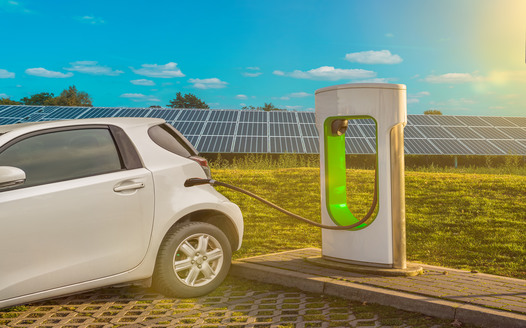WHY ARE ELECTRIC CARS NECESSARY?
October 2020
"
The foresights are such that the number of electric cars all around the world will increase to a level between 120-125 million as of 2030.
"
The history of the electric cars the recognition of which is increasing day by day at our present time dates back to the end of the 19th century – the beginning of the 20th century. The rapid development of the internal combustion engine technology and the cheap mass production of the petroleum-driven cars put the need for the electric cars aside until recently. With the fuels used in the conventional cars which became exhaustible resource and the direction of all energy sectors to green energy by the increasing carbon dioxide emission, the electric cars using clean energy have become one of the inevitable technology transformation in our present day.
When we mention about the electric cars, we encounter with diverse technologies. These technologies consist of completely battery electric vehicles (BEV), hybrid electric vehicles (HEV), mild hybrid electric vehicles (MHEV), plug-in hybrid electric vehicles (PHEV) and fuel cell electric vehicles (FCEV).
According to the study carried out by SHURA in 2018, the transportation sector constitutes 26% of the total energy consumption and more than one fifth of the carbon dioxide emission in Turkey as the energy resource of the conventional transportation sector is dominantly petroleum. For this reason, it can be said that it has become a necessity for the transportation sector to direct to green energy-driven electric cars without carbon dioxide emission in Turkey and in the entire world. The total number of the electric cars in the global vehicle inventory was over 5 million at the beginning of 2019. In Turkey, on the other hand, there were approximately 1000 electric cars among 12,5 million vehicles. When it is considered that the annual total electric demand of the electric cars is 1,5 gigawatt hour (GWh) in Turkey, the sufficiency of a small-scale solar energy power plant with the capacity of 1 megawatt (MW) in total in order to meet such demand indicates that how important the transition to the technology without carbon dioxide emission is.
"The foresights are such that the number of electric cars all around the world will increase to a level between 120-125 million as of 2030."
The most fundamental difference between the electric cars and the conventional cars with internal combustion engine is the use of energy. The energy systems of the conventional cars are composed of a petroleum tank, an alternator and a 12 V battery used in the ignition of an engine with exhaust system controlled by fuel injector. As we know, gasoline, being raw petroleum product, or diesel is used as fuel in the operation of these systems. The electric cars, on the other hand, are composed of electric motor, battery set and AC-DC convertor in order to control the motor. Although the hybrid systems differ, their fundamental energy resource is electric which we can generate also from the renewable energy resources which are infinite. This difference makes the electric cars without the finite fuel problem attractive.
The proliferation of electric cars can be achieved with the innovations to be made in the battery technologies and the establishment of the charging stations at more points. The factor that makes the use of electric car possible and reliable is the prevalence of the charging infrastructure. Whereas the time required for filling the tank of a conventional car is several minutes, the time required for charging an electric car may extend from several minutes to several hours depending on the charging technologies and the battery capacity. In line with such requirement, there is the opportunity of charging infrastructure in a wide range from the charging station technology by which you can store the energy that you generate during the day by using the solar modules on the roof of your house and charge your car at night to the charging stations which will enable you to charge your car with fast direct current (DC) on the motorways.
"The proliferation of electric cars depends on the development of the battery technologies and the reinforcement of the charging infrastructure."
Notes regarding the Reflection of the Electric Cars to the Energy Sector
With the proliferation of electric cars, it will be required to make inevitable regulations in the distribution networks. The increase of the electric need will cause changes to be made in the infrastructures and the electric purchase-sale procedures to be completely changed. When we examine this issue, we encounter with smart inverters and renewable energy-based distributed energy networks. In this system, the network flexibility and energy safety occur in the scenarios in which the consumers also become producers by using the cost-effective energies such as wind and solar energy with bidirectional counters or the consumers can sell the electric power to the network from their advanced electric car batteries when necessary. In this way, the electric cars will be used not only for the purpose of transporting, but also as a method to match the transportation sector and the energy sector in the near future.

